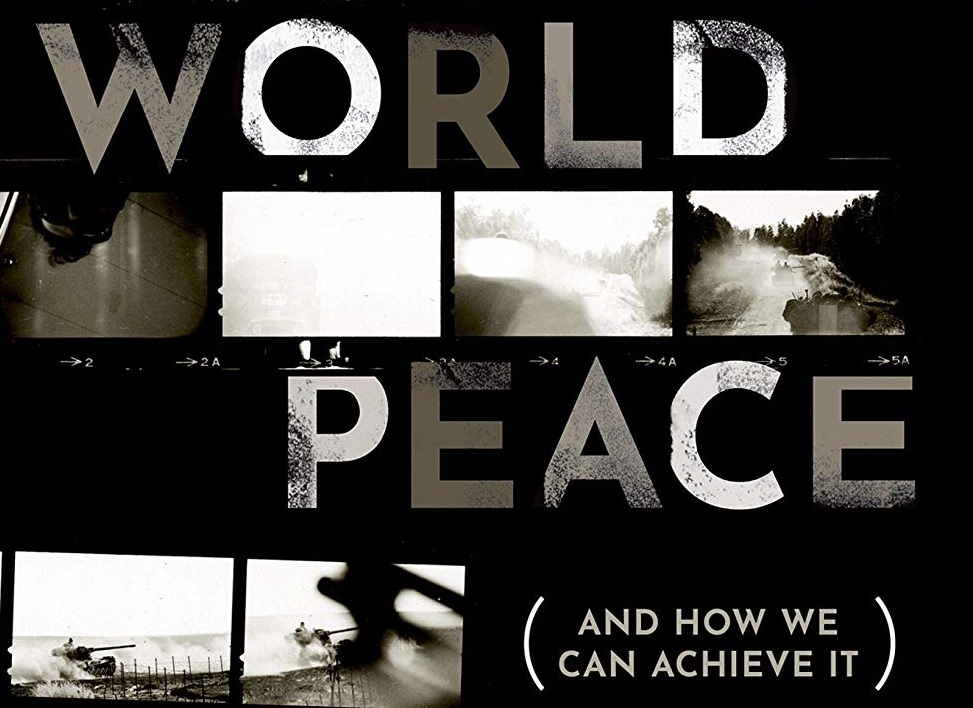
Alex Bellamy is one of Australia’s leading authorities on security issues, especially the possible application of the ‘responsibility to protect’ doctrine. By academic standards he’s also the very model of an engaged, highly influential public intellectual who has worked tirelessly in the cause of peace and security. In short, there is a lot to admire about Professor Bellamy, which is what makes
his new book the proverbial ‘must read’ for anyone with even a passing interest in the theory and—more importantly—the possible practice of world peace.
Writing a book about the prospects and even the very possibility of world peace might seem like a quixotic project at this moment in history. After all, we’re continually inundated with images of people being blown up in some war-torn part of the world or other. And yet the underlying empirical reality that drives much of the discussion in this rather inspiring and hopeful book is that ‘peace is more common than we think’. The pursuit of world peace is, in fact, ‘deeply pragmatic’, not least because war is ‘increasingly anachronistic’.
Bellamy develops this thesis by examining the causes of war—political divisions and differences in values; its historical profitability; its contagiousness—and by suggesting that peace has a long history and is, in fact, much more likely than it may seem. Far from being the inevitable driver of conflict as realists claim, states that are accountable to their citizens, even if they are non-democratic, can play a crucial role in developing a less violent world.
Unsurprisingly, perhaps, Bellamy highlights the potentially pacifying effects of international commerce, especially the sort that is embedded in cross-border production networks. The assumption that people—especially policymakers—are potentially rational and capable of making enlightened judgements about their long-term interests pervades the book. It’s a claim that is being put to a searching examination in the current ‘trade war’ between the United States and China.
The fact that the dispute with China is proving less ‘easy to win’ than President Donald Trump believed may actually be confirmation of liberal claims about the constraining influence of economic interdependence. Yet Bellamy recognises that ‘peace activists and theorists have underestimated the capacity of nationalism to reorder people’s priorities’, a possibility he might have explored more fully in the context of the rising tide of populism and authoritarianism that is currently afflicting much of the globe, perhaps.
One of the most significant contributions of this ambitious book is to provide a roadmap for practical steps towards actually achieving world peace. The path, Bellamy suggests, ‘probably does not lie through world government’. States will continue to play a crucial role, but so will ‘recognizing and nurturing the plurality of our identities’. No doubt such sentiments will induce much eye-rolling among the strategic elites of Canberra and elsewhere, but it hardly needs to be pointed out that intolerance and prejudice aren’t exactly a recipe for peaceful relations—which I assume we’d all like to see if possible.
Bellamy’s suggestions for encouraging world peace revolve around a more effective United Nations with a greater capacity to implement legal restraints on aggression, arms dealing, promoting security communities, protecting and/or holding individuals to account, and generally promoting the idea of peace. This will no doubt strike some prospective readers as unlikely wishful thinking, but it is not possible to do justice to the sophistication and persuasiveness of the arguments Bellamy deploys in a short review.
For all its brilliance, however, there is one glaring gap in the discussion and it is planet-sized: there’s almost no mention of climate change and its increasingly visible impact on the natural and strategic environment in which questions of war and peace will be decided. My own feeling is that we may have collectively missed the opportunity to really ‘change the world’ in the 1990s, when the end of the Cold War really did hold out entirely unforeseen opportunities. Now, however, the circumstances are very different and the ‘principle of hospitality’ that Bellamy sees as a key part of pluralising our identities looks increasingly unlikely—at the very time that climate change is likely to make it ever more prominent and contested.
Nevertheless, this is a very significant contribution to what is generally an impoverished, deeply depressing and all-too-predictable discussion of security issues. It really ought to be read by the policymaking community in this country and elsewhere, but I suspect it won’t be. They are, of course, too busy spending money we don’t have on weapons we don’t need for conflict we couldn’t win in any meaningful sense anyway. Changing the dominant discourse is never easy, but Bellamy has produced a brave and brilliant meditation on the most important issue facing the world. That’s worth at least an hour or two of anyone’s time, I would have thought.
 Print This Post
Print This Post